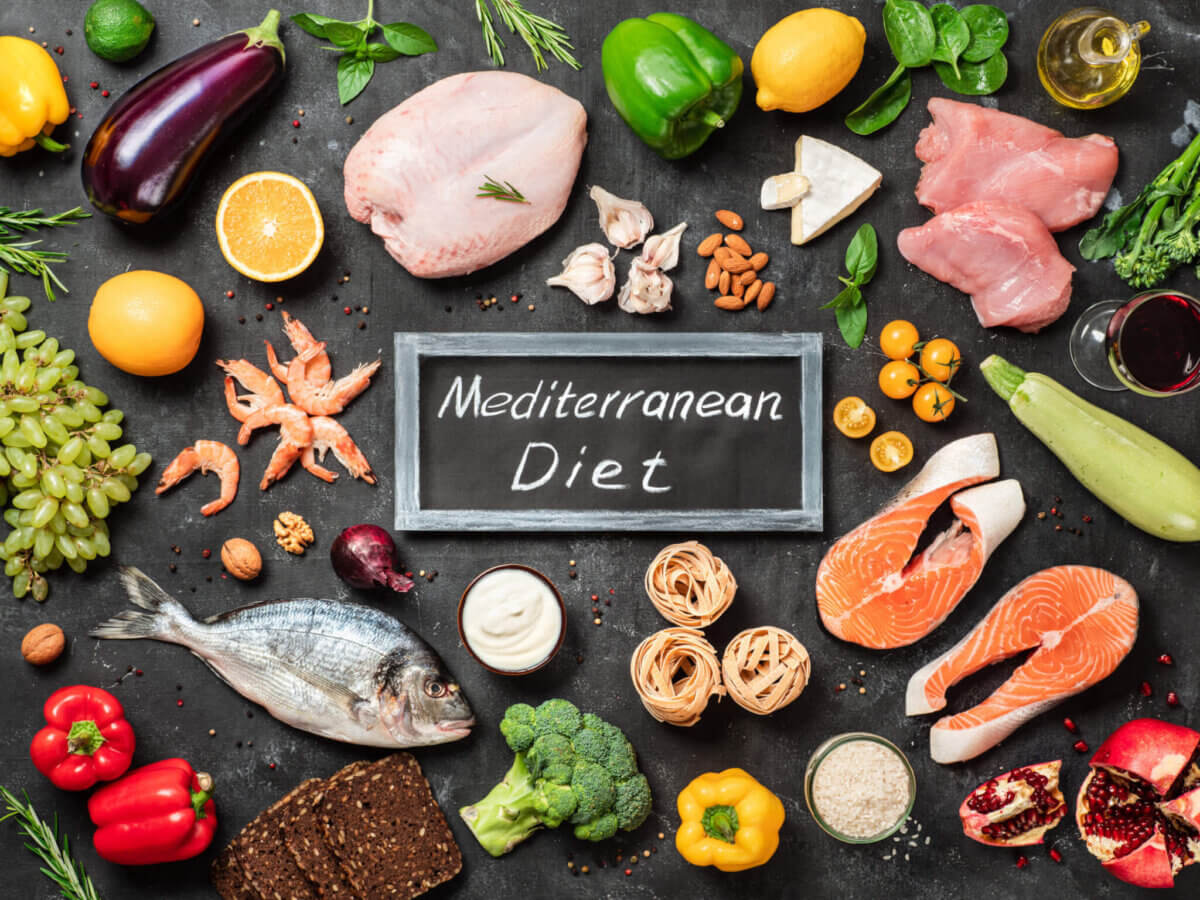SOPHIA ANTIPOLIS, France — A new study suggests that plant-based diets can reduce cholesterol and blood fat levels, thereby decreasing the risk of heart and blood vessel diseases. Vegetarians and vegans experienced a seven-percent reduction in their risk of cardiovascular disease over five years, compared to omnivores. However, this was only a third of the effect of taking statins. Researchers propose that a combination of a plant-based diet and statins could further enhance the benefits.
The researchers scrutinized 30 randomized trials involving just over 2,300 participants, published between 1982 and 2022. These trials evaluated how vegetarian and vegan diets influence all types of cholesterol compared to omnivorous diets, wherein participants continued to consume meat and dairy.
The studies examined three types of cholesterol. The first two types are low-density lipoprotein cholesterol (LDL) — also known as “bad” cholesterol — and triglycerides, a type of fat found in the blood. The third type is apolipoprotein B (apoB), a protein responsible for transporting fat and cholesterol in the blood. ApoB serves as a reliable indicator of the total amount of harmful fats and cholesterol in the body.
Through analyzing apoB, researchers found that vegetarian and vegan diets were associated with a 14-percent reduction in all artery-clogging lipoproteins. Compared to those following an omnivorous diet, vegetarians and vegans observed a 10-percent reduction in LDL cholesterol levels. On average, these individuals experienced a seven-percent decrease in total cholesterol from the beginning of the study.
“We found that vegetarian and vegan diets were associated with a 14% reduction in all artery-clogging lipoproteins as indicated by apoliprotein B,” reports Professor Ruth Frikke-Schmidt, a chief physician at the Rigshospitalet in Denmark, in a media release. “This corresponds to a third of the effect of taking cholesterol-lowering medications such as statins, and would result in a 7% reduction in the risk of cardiovascular disease in someone who maintained a plant-based diet for five years.”
“Statin treatment is superior to plant-based diets in reducing fats and cholesterol levels. However, one regimen does not exclude the other, and combining statins with plant-based diets is likely to have a synergistic effect, resulting in an even larger beneficial effect.”
Scroll down to see a list of the healthiest diet, according to heart experts

Professor Frikke-Schmidt emphasizes the significant potential of plant-based diets in mitigating the risk of cardiovascular disease caused by blocked arteries, especially if implemented from an early age. Notably, the study found similar results across continents, various body mass index ranges, and individuals with diverse health statuses.
Participants in the study were randomly assigned to follow either a vegetarian or vegan diet or to continue their regular consumption of meat and dairy. The diet duration ranged from ten days to five years, with an average of 29 weeks.
“We saw significant effects from both vegetarian and vegan diets and people ranging from a normal weight to obese,” says Professor Frikke-Schmidt.
Cardiovascular disease (CVD) causes over 18 million deaths worldwide each year, making it the leading cause of death. It is accountable for one in four premature deaths in the UK, with individuals from poorer areas being more susceptible to cardiovascular issues. CVD encompasses coronary heart disease, angina, heart attack, high blood pressure, and stroke.
The United Nations’ Sustainable Development Agenda aims to reduce premature deaths from non-communicable diseases like CVD by a third by 2030. The agenda also emphasizes the environmental impact of our dietary choices.
The researcher notes that recent systematic reviews have revealed that if populations in high-income countries transition to plant-based diets, this could lower net emissions of greenhouse gases by 35 to 49 percent. The study provides strong evidence that plant-based diets are beneficial to our health for people of various sizes, ages, and health conditions.
“Furthermore, populations globally are aging and, as a consequence, the cost of treating age-related diseases such as atherosclerotic cardiovascular disease is increasing,” the researcher points out. “Plant-based diets are key instruments for changing food production to more environmentally sustainable forms, while at the same time reducing the burden of cardiovascular disease. We should be eating a varied, plant-rich diet, not too much, and quenching our thirst with water.”
The study did not elucidate the potential benefits of a pescatarian diet due to a lack of sufficient studies.
“However, the Mediterranean diet is rich in plant-based foods and fish and is well-established as being beneficial in dietary guidelines,” says Frikke-Schmidt.

(© fascinadora – stock.adobe.com)
“The results reported by Koch et al add to the body of evidence supporting favorable effects of healthy vegan and vegetarian dietary patterns on circulating levels of LDL-C [LDL cholesterol] and atherogenic lipoproteins, which would be expected to reduce ASCVD [atherosclerotic CVD] risk,” adds Professor Kevin Maki from the Indiana University School of Public Health Bloomington, who did not take part in the research.
“While it is not necessary to entirely omit foods such as meat, poultry, and fish/seafood to follow a recommended dietary pattern, reducing consumption of such foods is a reasonable option for those who prefer to do so.”
To the authors’ knowledge, this is the largest systematic review of the topic and is the first to include apoB. However, the study has certain limitations. The trials were relatively small, the length of time participants were on the diets was under a year in many cases, and blinding participants to their diet assignments was not possible. These factors could have influenced other behaviors of the participants and may have affected their cholesterol and fat levels.
The study is published in the European Heart Journal.
Which diets are the best for your heart?
A new report from the American Heart Association (AHA) ranked popular diets based on their impact on heart health. Their top tier diets included:
- DASH: Describes an eating pattern that’s like the Dietary Approaches to Stop Hypertension (DASH) diet, emphasizing vegetables, fruits, whole grains, legumes, nuts and seeds, and low-fat dairy and includes lean meats and poultry, fish and non-tropical oils.
- Mediterranean: This pattern limits dairy; emphasizes vegetables, fruit, whole grains, legumes, nuts and seeds, fatty fish and extra virgin olive oil; and includes moderate drinking of red wine.
- Vegetarian/Pescatarian: A plant-based eating pattern that includes fish.
- Vegetarian/Ovo/Lacto: Plant-based eating patterns that include eggs (ovo-vegetarian), dairy products (lacto-vegetarian) or both (ovo-lacto vegetarian).
- Vegetarian/Vegan: A plant-based eating pattern that includes no animal products.
The DASH-style (Dietary Approaches to Stop Hypertension) diets, designed to treat or limit high blood pressure, obtained a perfect score in meeting all of the AHA’s guidance.
South West News Service writer Alice Clifford contributed to this report.


A true Plant Based diet such as outlined by T. Collin Campbell, Dr. Esselstyn, Dr. Ornish, Dr. Furhman, Dr. McDougall will produce even better results.
Unlike a true Plant Based Diet, most vegan diets are high in fat, salt, sugar and highly processed foods.
Totally agree. It’s a shame that the word is not out in this.
‘The case against science is straightforward: much of the scientific literature, perhaps half, may simply be untrue. Afflicted by studies with small sample sizes, tiny effects, invalid exploratory analyses, and flagrant conflicts of interest, together with an obsession for pursuing fashionable trends of dubious importance, science has taken a turn towards darkness.’
Richard Horton richard.h [email protected]
Quoting from a May 1, 1999, statement—“Why U.S. Environmental Protection Agency scientists opposes artificial water fluoridation”—written by William Hirzy, PhD, [Union of Scientists] Senior Vice-President, Chapter 280:
This stuff is even worse, they no longer have hypotheses and experiments, but merely sit at a desk and run statistic packages against other people’s nonsensical, paid for results, somehow claiming that because they use a figure of 3,000 instead of 1,000 it is more meaningful.
“The opinion of 10,000 men is of no value if none of them know anything about the subject.” —
Marcus Aurelius, Roman Emperor from 121–180 A.D. and Stoic philosopher
or worse, they are paid to hold those opinions.
I don’t give a damn what you or anyone else eats, I happen to have been Vegan for 35 years and am doing great. Your health is your problem not mine.
This study started with the conclusion that cholesterol in the blood causes heart problems. From that premise, they concluded that any means to lower that fat would reduce the risk of those problems. If cholesterol in the blood has been proven to cause heart disease, please show me the studies. I claim the cholesterol in the blood is the body’s way of correcting an underlying problem and is thus a marker, not a cause of heart disease. This study is as meaningless as all the underlying studies without proof of this basic assumption.
While looking for studies proving cholesterol causes heart disease, please explain why the cholesterol seems to pick a specific location to cause blood clots. Since the cholesterol travels throughout the bloodstream, why is the entire artery or vein not coated in fat rather than forming a clot in a specific location? Also, explain why several studies show that higher cholesterol in those over 50 is associated with longer life. Then, take note that the number-needed-to-treat for statin drugs is over 100. Since, according to this study, diet is less effective than statin drugs, it would require more than 100 people to adopt the diet to prevent a single heart problem.
Finally, I note that the study focuses on heart problems and not all-cause death. The body is a complicated system that we clearly do not fully understand. Any intervention, especially one as complicated as a change in diet will necessarily change many parameters. If you focus on a single parameter, you will miss the fact that you are destroying some other process and shortening lifespan.
I conclude that this study is worthless in providing information about my food choices.